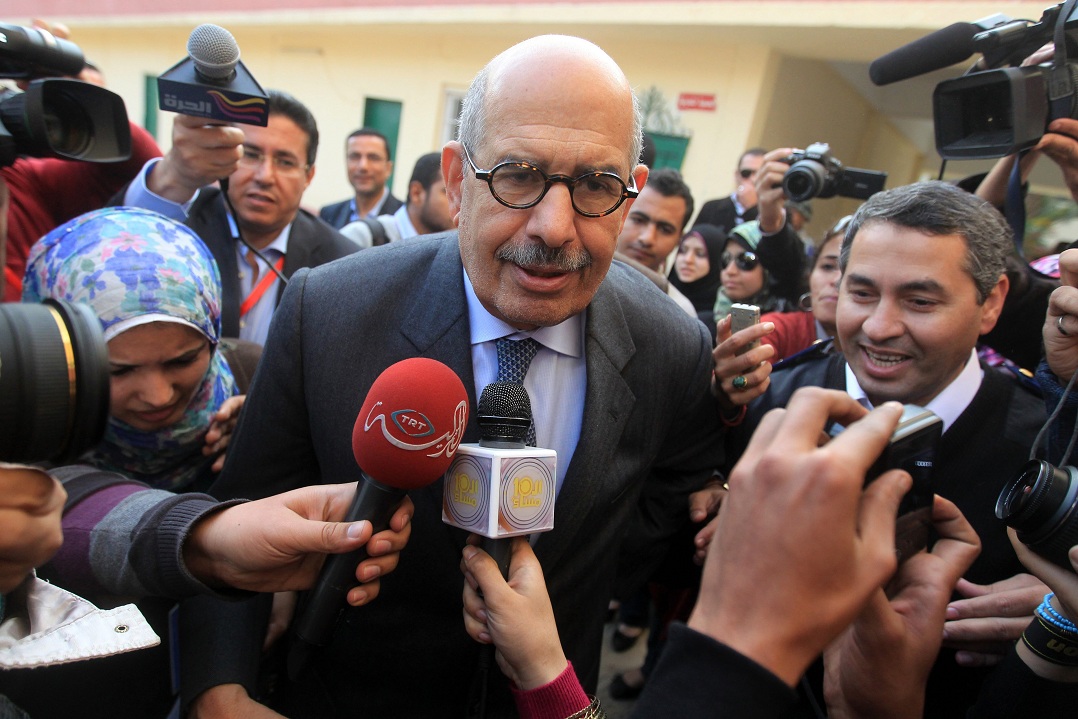By Andrew Hammond and Warda Al-Jawahiry / Reuters
MANAMA/DUBAI: Bahrain’s government and a jailed Shia rights activist who is on hunger strike are playing a game of brinkmanship as his health deteriorates days before the Formula One Grand Prix, a showcase event for the Gulf state as its grapples with political unrest.
To release Abdulhadi Al-Khawaja, one of 14 men in prison for leading an uprising last year, would be a comedown for a government that has failed to quell a movement led by majority Shias seeking democratic reforms that would reduce the Sunni dynasty’s power.
But his death would be a disaster, creating a martyr who would galvanise the street and risk spoiling government efforts to persuade Western allies that reform at the pace of its choosing is working.
Bahrain is the base for the US Navy’s Fifth Fleet and Washington has only gently prodded its Saudi-allied rulers to improve human rights and push forward political reforms.
Thirty-five people were killed during the uprising last year, including five from torture, as well as security personnel.
“Neither of them want to back down and it’s quite difficult for either of them to do so,” said Jane Kinninmont, a senior research fellow at Chatham House in London.
His family also sees a government in dilemma.
“He is a pain in the neck for them but they don’t want him to die also, that’s why they have taken him to their best hospital, in the royal wing,” his wife Khadija Al-Mousawi said in an interview, wiping away tears.
“I also noticed the high number of nurses and doctors that were there in his wing when we went to visit, so the medical care is there – proof that they don’t want him to die. But at the same time they don’t want him free.”
The government said last week that Khawaja, now in a military hospital, was in good condition but that his life could be at risk if he keeps refusing food and medication.
Government officials were not available on Thursday to comment further on the situation.
Bahrain last week rejected a Danish proposal to release Khawaja to Denmark, where he also holds nationality. His daughter Maryam has been a critic of the government from her base there.
With the Formula One Grand Prix revving up this weekend, Khawaja’s failing health threatens to overshadow a prestigious event the government hopes will show the world that all is back to normal and the uprising is over.
This week two dissidents in London climbed the walls of Bahrain’s embassy to unfurl a poster of Khawaja from the roof.
He is also a focal point of daily anti-government protests, mostly in Shia districts, that have increased in intensity in the days befoe the big race.
Only water
Khawaja, who has said he will fast to his death if he is not freed, says he will reduce his food intake to just water.
“He has decided to stop taking glucose in his water and taking food intravenously. He will only take water from today,” said Mohammed Al-Jishi, a lawyer who has visited him regularly.
He said it was not clear if the authorities would force-feed him or not. Thursday is his 71th on the hunger strike.
Analysts say there is especially bad blood between Khawaja and the government.
He is one of eight serving life sentences, after he expressed support last year for Bahrain becoming a republic, and one of the jailed leaders who Sunni hardliners are particularly loathe to see shown leniency.
Some Sunnis and Shias fear the rise of a Shia opposition that could develop links with clerics in Iran, Iraq and Lebanon. They dismiss claims of Shia political and economic marginalization, viewing the ruling family as protectors.
Jamal Fakhro, a pro-government Sunni who is deputy head of the appointed house of parliament and often reflects official thinking, sought to play down Khawaja’s significance.
“Abdulhadi is definitely not a national figure. He and the rest of the human rights people have their own political agenda but they use the rights route to present their case,” he told Reuters.
Street hero
But he is idolized on the Shia street as a political rights activist who refuses to compromise.
“He is everything to us, he is my faith and hope. If anything goes wrong with him we will never forgive ourselves, and the regime will regret that,” said Sayed, an activist in his 20s from the mainly Shia town of Aali.
Khawaja, who helped found the Bahrain Centre for Human Rights, is also well-known in the international rights arena. He has worked with Front-Line Defenders and Amnesty International, conducting research in Iraq in 2003.
“He is well-respected outside the country. We have never seen him condoning violence at all, so we are very comfortable saying he is a prisoner of conscience,” said Said Boumedouha, an Amnesty International researcher.
“He was arrested on several occasions and he was very critical of the royal family, the prime minister and corruption in seminars. It goes back to that,” he said.
Khawaja’s family have identified him as case No. 8 in abuse recounted by unnamed detainees in the November report of the Bahrain Independent Commission of Inquiry (BICI), which Manama formed after international pressure to investigate the unrest.
The detainee underwent surgery on his jaw after he was beaten up on arrest on April 8, 2011. The account says that abuse resumed eight days later, including beatings on the soles of his feet and being sodomized with a stick.
The report says the detainee went on hunger strike at that time in an effort to stop the torture.
Kinninmont said both Khawaja’s release or his death could deepen the divide that has gripped the island.
“Releasing him will be extremely divisive. But if he dies he would become Bahrain’s most well-known martyr, while another part of the population would say good riddance,” she said.

